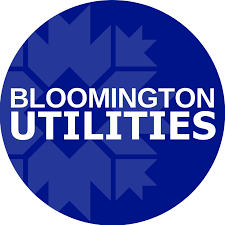
(BLOOMINGTON) – Starting this week, the City of Bloomington Utilities (CBU) will test wastewater for coronavirus in an effort to gauge viral prevalence in the community. For ten weeks until October 23, wastewater professionals from CBU will collect samples three times each week at eight sites across Bloomington, including each of the two wastewater treatment plants. The testing of samples is being conducted by multiple private, independent laboratories.
Early research has shown that the virus can be detected in wastewater one week earlier than a hospital experiences an escalation in cases, allowing more time for a community to react and potentially contain the spread of the virus. Wastewater testing is especially valuable in consideration of current limited access to individual testing; results will yield a more accurate prevalence rate than a positivity rate based on the number of residents who obtain tests (a figure largely defined by those who experience symptoms).

“The City is enthusiastic about participating in this innovative exploration of viral prevalence in our community,” said Mayor John Hamilton. “In the absence of a robust national testing system, I’m glad Bloomington is contributing to the development of an alternative approach to obtaining an accurate picture of COVID positivity.”
Funded by the Indiana Finance Authority, testing is being coordinated by 120Water, a Zionsville, Ind.-based drinking water utility technology support firm. Samples will be analyzed by 120Water as well as a team at the University of Notre Dame led by infectious disease expert Dr. Alex Perkins and Dr. Kyle Bibby, who oversees comparative lab analysis. Data collected will be available after the conclusion of the sampling period at the B-Clear open data portal, under “Utilities/Water.”

“CBU’s first duty is to protect public health and safety, and participation in the sewer sampling program is part of that commitment,” said Utilities Director Vic Kelson. “This technique is new and only now being widely studied, and we are excited by the opportunity to make a contribution to this work.”
In order to safeguard the health of CBU employees working with wastewater and collecting samples, staff wear personal protective equipment–including masks, gloves, and goggles–and follow safety standards set by regulatory entities. While disinfectants with which wastewater is treated effectively kill the virus and thereby significantly minimize the risk of contamination to those interacting with wastewater, sampling can be performed because viral RNA remains detectable in wastewater even after disinfection.



